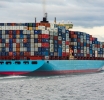How much money do you need to start trading on Forex?

Friends, how much money will you need to start trading Forex? This question may be one of the most important for those who are just starting their way in the world of financial markets. But you should not despair or give up - we are sure that at the end of this article you will have all the answers you need and the confidence that you can start right now!
1. Introduction: Explanation of Forex trading and its popularity as a financial market.
2. Factors to consider before starting Forex trading: Importance of understanding the risks involved, having a solid trading strategy, and conducting thorough research.
3. Minimum capital requirement for Forex trading: Discussion on the amount of money needed to start trading in Forex, including margin requirements and account types.
4. Additional costs associated with Forex trading: Overview of transaction costs, spreads, and fees that traders may incur while participating in the market.
5. Conclusion: Summary of key points discussed and final thoughts on the financial commitment required to start trading on Forex.

How much money do you need to start trading on Forex?
How much money do you need to start trading on Forex?
1. Introduction: Explanation of Forex trading and its popularity as a financial market.
Forex, short for foreign exchange, is the largest and most liquid financial market in the world. It involves buying and selling currencies with the aim of making a profit from the fluctuations in their exchange rates. Forex trading has gained popularity over the years due to its accessibility, flexibility, and potential for high returns.
2. Factors to consider before starting Forex trading: Importance of understanding the risks involved, having a solid trading strategy, and conducting thorough research.
Before diving into Forex trading, it is crucial to understand that it comes with inherent risks. The forex market is highly volatile and can be influenced by various factors such as economic indicators, political events, and central bank decisions. Traders need to be prepared for potential losses and have a risk management plan in place.
Having a solid trading strategy is another key factor to consider before starting Forex trading. A well-defined strategy helps traders make informed decisions based on technical analysis or fundamental analysis. It provides guidelines on entry points, exit points, stop-loss orders, and take-profit targets.
Conducting thorough research is essential for successful Forex trading. Traders should stay updated with economic news releases, monitor currency pairs' performance charts, study historical price patterns, and learn from experienced traders' strategies.
3. Minimum capital requirement for Forex trading: Discussion on the amount of money needed to start trading in Forex including margin requirements and account types.
The minimum capital requirement to start forex trading varies depending on several factors such as broker requirements, account type chosen (standard account or mini/micro account), leverage offered by brokers (the ability to trade larger positions with smaller amounts of capital), individual risk tolerance level, etc.
In general terms though some brokers allow traders to open an account with as little as $100 or even less; however having more substantial capital can provide better flexibility when it comes to managing risks effectively using appropriate position sizing and risk management techniques.
Margin requirements are another aspect to consider when determining the minimum capital requirement. Margin is a collateral amount required by brokers to cover potential losses on trades. It allows traders to control larger positions with a smaller amount of capital, amplifying both profits and losses. The margin requirement varies among different brokers, but typically ranges from 1% to 5% of the position size.
4. Additional costs associated with Forex trading: Overview of transaction costs, spreads, and fees that traders may incur while participating in the market.
Apart from the initial capital requirement, traders must also consider additional costs associated with forex trading. These costs include transaction costs (commissions or fees charged by brokers for executing trades), spreads (the difference between the bid price and ask price), and overnight swap rates (interest rate differentials for holding positions overnight).
Transaction costs can vary depending on broker types (ECN or Market Maker) and account types chosen by traders. Spreads can also vary depending on currency pairs being traded, market volatility, time of day, etc.
It is essential for traders to carefully examine these additional costs as they can significantly impact overall profitability in Forex trading.
5. Conclusion: Summary of key points discussed and final thoughts on the financial commitment required to start trading on Forex.
In conclusion, starting forex trading requires careful consideration of various factors such as understanding risks involved in forex trading, having a solid trading strategy based on thorough research analysis; minimum capital requirements determined by broker’s margin requirements; additional costs associated with transactions like spreads and commissions; etc.
Forex trading offers significant profit potential but also involves substantial risks. Therefore it is crucial for individuals interested in entering this market to educate themselves thoroughly before committing their hard-earned money into it.
money, start trading, Forex









Report
My comments